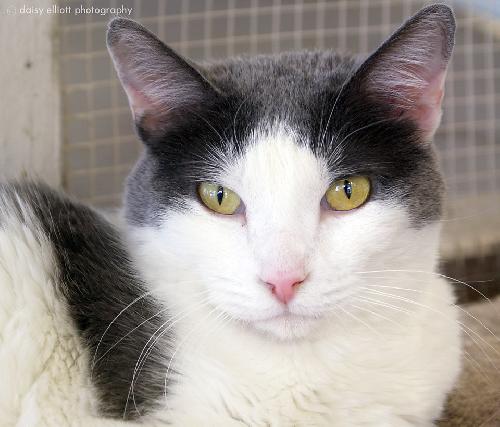What to Expect When You’re Expecting… to Adopt a Cat!

THINGS TO CONSIDER BEFORE YOU DECIDE TO ADOPT A CAT:
- Can I afford it?
- Your new cat will require food, a litter box, litter, vet care, toys, etc. This can be an expensive endeavor, especially if you adopt a cat with special needs. However, with budgeting and understanding, this does not have to be an impediment. Check out this list of costs to consider as well as budgeting tips!
- Do I have time?
- Can are typically portrayed as aloof and independent to a fault in the media, however, domestic cats are actually quite social creatures. Pet cats require attention, playtime, and love, just like dogs.
- Am I ready for this commitment?
- Adopting a cat is a long-term commitment! In the U.S., indoor cats live for 15 years on average; some live into their 20s.
- If you have other humans, kitties, or animals in your home, how will they handle their new family member?
- Introducing your new cat to your other family pets takes time and patience. There is a way to do introductions properly, making it more likely for everyone to get along and the adoption to be successful.
- What will happen to your new kitty if something should happen to you?
- It is a good idea to think about contingency plans for all your pets. Who will care for them when you are out of town? Will a family member adopt them if you can no longer take care of them? Is there someone you can trust to rescue the cat should something happen to you unexpectedly?
- The Hermitage has a great program called Continuing Cat Care, which is part of our legacy program and ensures the safety of your cat(s) after you are no longer able to care from them. Read more here…
Yay! You have emphatically answered the above questions, and you’re ready to begin the adoption process…

THE ADOPTION PROCESS AT THE HERMITAGE:
Step 1: Fill out our adoption application
- At The Hermitage, our adoption application process is thorough because we want our cats to go to loving homes for the rest of their lives and to help adopters find their perfect cat match.
Step 2: Our paw-mazing Adoption Coordinator will process your application and contact you
- You will be contacted by phone or email
- The time it takes to process an application varies, but most adopters will be contacted within the week (so please try to be patient J)
Step 3: Schedule your adoption appointment
- When you are contacted, you will have an opportunity to schedule your visit to the shelter.
Step 4: Come to your adoption appointment
- Arrive at The Hermitage on your scheduled day during your scheduled time. You will be given a tour of our beautiful, cage-free shelter
- At the end of the tour, you will have the opportunity to spend some time with the cats
Step 5: Choose your new family member(s)…or let them choose you!
- Once your cat(s) choose you, please let staff know.
Step 6: Physical check-up
- Your chosen cat(s) will be taken to our medical ward where our vet staff will give them a physical and review their medical history
Step 7: Go over the paperwork
- While your cat(s) is getting their physical, our Adoptions Coordinator will go over some paperwork with you; this includes your adoption contract, any medical needs the cat has, and answer any questions you may have about introducing your new cat to their new environment.
Step 8: Take your cat(s) home!
- Your Hermitage cat is:
- Spayed/neutered
- Up-to-date on age-appropriate vaccines
- Microchipped
- You will leave the shelter with:
- Adoption Contract
- A list of our partner veterinarians (they will give you a free or discounted first check up for your Hermitage cat)
- Your cat(s)’s rabies certificate (if they were vaccinated at our shelter most recently)
- Other info about our shelter and cat behavior in general
- A go-home bag of food to get you started
- Your new best friend(s)!
Step 9: We often call new adopters to check in and see how you and your new cat(s) are adjusting. If you do not get a follow-up call, please feel free to call us at any time to ask questions or get advice.

TAKING YOUR NEW KITTY TO THE VET:
Although our medical team does a brief physical on adoption day and you will receive the cat(s)’s abbreviated medical history, we recommend that you take your new kitty to the vet of your choice within two weeks of adoption. If this is your first cat, we are happy to recommend a vet in your area of town. Additionally, we have partner veterinarians around town who will do a complementary or discounted initial exam for your new Hermitage cat; just present them with your Hermitage adoption paperwork.
Your vet will do a complete exam and check your new kitty’s overall condition. They will specifically check for:
- Any lumps, bumps, etc.
- Parasites: Fleas, ticks, and worms are not uncommon in multi-cat environments (like our shelter). We regularly de-worm our cats, but de-wormers are not 100% effective.
- Communicable Diseases:
- A percentage of cats in shelter environments carry URIs (Upper Respiratory Infections). Sometimes the stress of a major change (such as being adopted) can cause a flare up of a chronic infection or suppress their immune system so they are more susceptible to infection. This is a fairly common occurrence and will present with cold-like symptoms (runny nose, runny eyes, sneezing, etc.).

BRINGING YOUR NEW KITTY HOME:
Congratulations on your adoption! We know you’re as excited about this new addition to your family as we are, and we couldn’t be more thrilled! Here are a few tips and important things to watch for:
- It often helps to create a “safe space” for your new kitty. This helps them adjust to their new home while minimizing stress and over-stimulation.
- This could be as simple as limiting them to a single room for a few days, and then gradually expanding their world.
- Your new cat may choose their own safe space within your home – a territory in which they feel most secure.
- Gently coax them out from under the bed, or the back of the closet, but don’t “go in after them”! That will just frighten them!
- Let your kitty know that you, too, are part of their safe-space. Sit with them, play with them, and offer them yummy food while you gently pet them. Some kitties are “social eaters”, and will happily chow down on their food if they have company.
- If you have other animals in your home, make sure to introduce them to your new cat slowly and gradually. Animals are more likely to get along if introduced properly.
- Make sure your new feline companion is eating every day.
- Some cats prefer to eat in the evening, others will “graze”.
- If you notice they haven’t eaten in 24 hours, gently warm some wet food, (the smellier the better). Warming it up for a few seconds in the microwave will make it smell more pungent, tempting the appetite of your new friend.
- If they go without eating for 48 hours, please call us (or your vet) immediately!
- Not eating for 3-4 days can start cats on the road to complete liver failure, and we know you want to enjoy many, happy, healthy years with your new friend. Often, it’s very easy to fix, but please don’t wait.
- Ensure they’re using the litter boxes.
- If a kitty doesn’t urinate in the box within 24 hours they could be “going potty” on the rug—or somewhere else! Try moving the box, or change the litter type. We recommend white vinegar and water (a ratio of 1:3) with a drop of dish soap to clean up the mess (it is safer than harsh chemical cleaners). We promise, it won’t smell like pickles when it dries!
- If they’re not urinating elsewhere in their safe room, there is a chance that they have a urinary blockage. This is a potentially life-threatening issue, and you should call us, or your vet (after-hours, contact a 24-hour vet hospital). Urinary blockage are rare, but dangerous, and there is no way to predict if your kitty will be prone to them.
- One way to make them feel more comfortable is to use Feliway™ wipes, (found online, or a pet store), on your hands and arms, and then on the kitty’s face and paws. Sit down with your kitty, and talk to them, gently scratching their chins, and letting them cover you with their pheromones—marking you as theirs. This helps them feel safer, and can accelerate the bonding process. Feliway™ also makes collars, sprays (for beds, etc.), and diffusers.

- Most of all, observe your kitty, and be patient. Even the most outgoing kitty can feel shy when they move to a new home. Soon enough that love-bug you fell for will emerge, and will follow you around, supervising you as you go about your day.
- If you have questions or need more advice, please call us!
